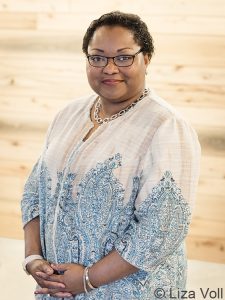Selecting the Search Committee and Defining Its Responsibilities:
The First Step in an Effective Search Process
Dr. Bruce D. Thibodeau, President
Wyona Lynch-McWhite, Senior Vice President
All arts and culture organizations go through a change in executive or artistic leadership, as well as in other senior management positions, at some point in time. While some transitions come after a long period of stable guidance under a single individual, others come more rapidly. Both types of transitions bring new opportunities for strategic realignment and broader public visibility. A successful search committee can create a calm and focused atmosphere in the midst of what can feel like an uncertain time for an organization. This edition of Arts Insights considers the selection of the search committee and clarifies its roles and responsibilities in guiding an effective executive search process.
Selecting the Search Committee
Equity, diversity, and inclusion are high priorities for many arts and culture organizations seeking new leadership. However, few consider the critical first step in selecting the right mix of search committee members who can effectively champion that goal. As organizations grapple with their policies around staff, board, audience, and artistic diversity, they sometimes miss opportunities to advance those policies in selecting an inclusive search committee whose voices represent many perspectives. These perspectives include not only an array of professional experience, organizational commitment, and community knowledge, but also the framing of varying races, genders, sexual orientations, physical abilities, ages, socioeconomic backgrounds, and other elements that can influence the selection process.
The following are just a few of the tremendous benefits in selecting a more inclusive and diverse search committee:
- Initial discussions around the skills, experience, education, and other qualifications needed in a new employee can remove barriers to access.
- Position announcements are written to diminish gender and racially biased language in what can be seen as a power-oriented leadership role, rather than a collaborative role.
- Generic equal opportunity employer language can be transformed into meaningful statements around the importance of equity, diversity, inclusion, and access.
- Search committee members hold one another accountable in addressing possible unconscious hiring biases that can emerge when assessing candidate materials and developing interview questions.
- The search committee is often seen as the initial and lasting face of an organization to the candidates. If there is limited diversity on the search committee, candidates may not feel welcomed into an organization or community. Candidates need to be attracted to both the position and organization while simultaneously being screened for professional experience, competencies, and other attributes.
- The search committee supports the broad distribution of the position announcement, ensuring outreach to a wide network of potential candidates. Having committee members who are connected to different professional and demographic networks is an important element in advancing the organization’s equity, diversity, and inclusion priorities.
Establishing an inclusive committee also means that members must be well informed as well as actively participate in the process. The search committee sets the tone for the search process internally and externally by keeping stakeholders informed and communicating institutional direction and job priorities. There are significant time commitments involved in a professional executive search process, including a variety of committee meetings, virtual and in-person interviews, social gatherings to get to know the candidate, and board meetings to update the organization on progress. A tentative timeline should be established to guarantee that everyone involved understands their commitment to the process and will prioritize these meetings in their calendars.
Defining Search Committee Responsibilities
As a search committee is formed, it is best to ensure that all members have clear responsibilities. The following list includes several general responsibilities that search committee members should expect as they become engaged in the executive search process.
- Serve as an active and positive participant in all stages of the search process.
- Ethically represent their constituent group and key organizational stakeholders.
- Develop and closely adhere to the search process timetable while maintaining flexibility as the process evolves.
- Identify the required or preferred skills, experience, education, and other qualifications of the person who will hold the position.
- Determine the communication style, motivations, and competencies that best fit the role, as well as organizational and interpersonal priorities.
- Establish additional objective criteria for the selection of qualified candidates based on the organization’s needs.
- Develop, review, and approve a detailed position announcement before it is distributed.
- Act as a community ambassador by promoting the organization and the available position.
- Disseminate information regarding organizational challenges and opportunities to provide full transparency to prospective candidates.
- Maintain candidate confidentiality throughout the search process.
- Review and approve unbiased interview questions for semifinalists and finalists.
- Conduct virtual and/or in-person candidate interviews with semifinalists and finalists.
- Ask appropriate and legal interview questions as provided by legal counsel or the executive search firm.
- Invite constituent groups to attend formal and informal meetings with finalists to gather their feedback.
- Suggest a compensation package to the executive or finance committee for consideration prior to a verbal offer.
- Recommend a final candidate to the board, if the position is one that reports directly to the board.
- Assess the effectiveness of the search committee, search firm, and other parties involved in the process.
Timing
Timing is everything in an executive search process. Great candidates can be hard to find. Therefore, a thorough process is required to ensure the right candidate is selected at the right time for both the organization and the new employee. According to the studies The Time Between: A Report of Museum Interim Executive Leadership Patterns and The Performing Arts in Transition: Executive Leadership on the Move, it takes almost eight months for the typical nonprofit arts organization to place a new leader when an organization undertakes a search on its own. This includes time to advertise, recruit appropriate candidates, review candidate materials, perform interviews, and negotiate an agreement. The longer an organization waits to begin organizing its search, the greater chance it will not be effective in its efforts. Executive searches guided by a professional firm typically take six months or less depending on the specific circumstances and goals of the organization. An outside firm can also greatly assist in providing strategies that promote equity, diversity, and inclusion in the hiring process while raising concerns about potential unconscious hiring bias, gender pay equity issues, or other roadblocks to advancing a more diverse workforce.
Conclusion
The executive search process can be a wonderful adventure filled with possibility about the future. This critical moment allows the organization to realign priorities and set the stage for future success. Selecting an inclusive search committee and clearly defining its roles and responsibilities are the first steps in a truly equitable, inclusive, and diverse executive search process. By embracing this process, understanding the importance of timing, and involving key stakeholders from various backgrounds, the search committee can ensure great success in the selection and onboarding of the new employee and increase the likelihood of organizational success.
 Dr. Bruce D. Thibodeau, President
Dr. Bruce D. Thibodeau, President
Dr. Bruce D. Thibodeau founded ACG in 1997 and has guided hundreds of nonprofit, university, and government clients in achieving effective leadership transitions, planning cultural facilities, increasing revenues, developing dynamic institutional brands and messages, crafting strategic plans and business models, and revitalizing board governance practices. He has also conducted extensive research in a threefold exploration of stakeholders, nonprofit arts management, and cultural facility project management and has facilitated numerous community engagement processes that have increased the public dialogue and stakeholder awareness of the arts and culture sector’s value and impact on communities. As both a researcher and practitioner, his expertise highlights the important roles of project champions and followers as they overcome inertia and gain momentum derived from their social connections, personal commitments, and financial capacities to support the arts and culture sector. Prior to founding ACG, Dr. Thibodeau held various management roles at the Los Angeles Chamber Orchestra, Boston Symphony Orchestra, Hartford Symphony Orchestra, Santa Fe Chamber Music Festival, Price Waterhouse, and Museum of Contemporary Art Los Angeles. He is a regular guest speaker at national and international arts, culture, and academic conferences and has several published papers. Dr. Thibodeau holds a doctorate of business administration from the Grenoble Ecole de Management (France), a master of business administration from the F.W. Olin Graduate School of Business at Babson College, and a bachelor of music from The Hartt School at the University of Hartford. He also has multiple certifications in competencies, communications, and motivations analysis from Target Training International.

Wyona Lynch-McWhite, Senior Vice President
Wyona Lynch-McWhite joined ACG in 2016, bringing more than 21 years of experience leading art, university, and multidisciplinary museums. Her areas of expertise include executive search, museum planning, organizational assessments, strategic visioning, fundraising, and diversity training. As an Executive Search practice leader, she has led numerous search processes throughout the United States and Canada, placing executive leaders for a wide range of nonprofit organizations, universities, and government agencies. Ms. Lynch-McWhite has also provided effective solutions in the areas of earned revenue enhancement, strategic planning, and museum planning for clients such as Collier County Museum Division, High Desert Museum, and Civil Rights Institute of Inland Southern California. Prior to joining ACG, she served as the Executive Director of the Fruitlands Museum and Fuller Craft Museum. Ms. Lynch-McWhite was previously a Director-at-Large and Program Committee Co-Chair on the South Eastern Museums Conference governing council and has served as a National Grant Reviewer for the National Endowment for the Arts and the Institute of Museum and Library Services. A 2006 participant in the Getty Center’s Museum Leadership Institute, she currently serves as the Leadership and Management Network Chairperson of the American Alliance of Museums and as a board member of the New England Museum Association. Ms. Lynch-McWhite graduated Magna Cum Laude with a bachelor of science degree from Florida A&M University and holds a master of fine arts degree from Columbia College, Chicago.
Contact ACG for more information on how we can help your organization
with its inclusive, diverse, equitable, and accessible leadership transitions.
(888) 234.4236
info@ArtsConsulting.com
ArtsConsulting.com
Click here for the downloadable PDF.
